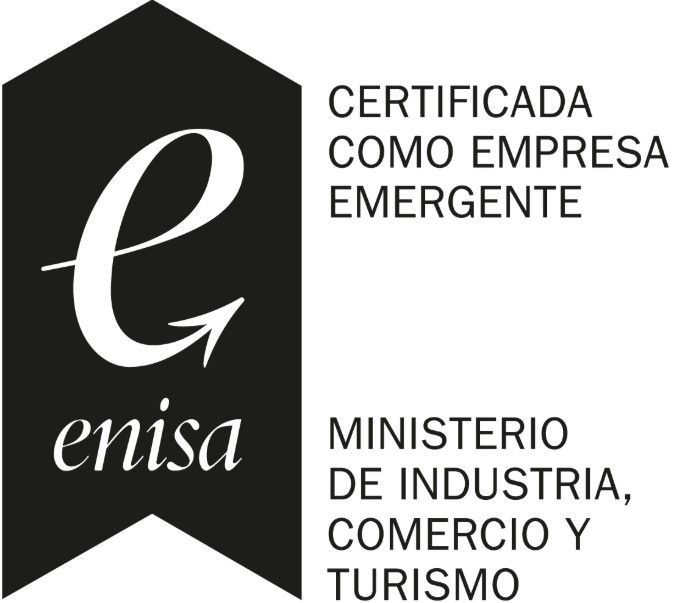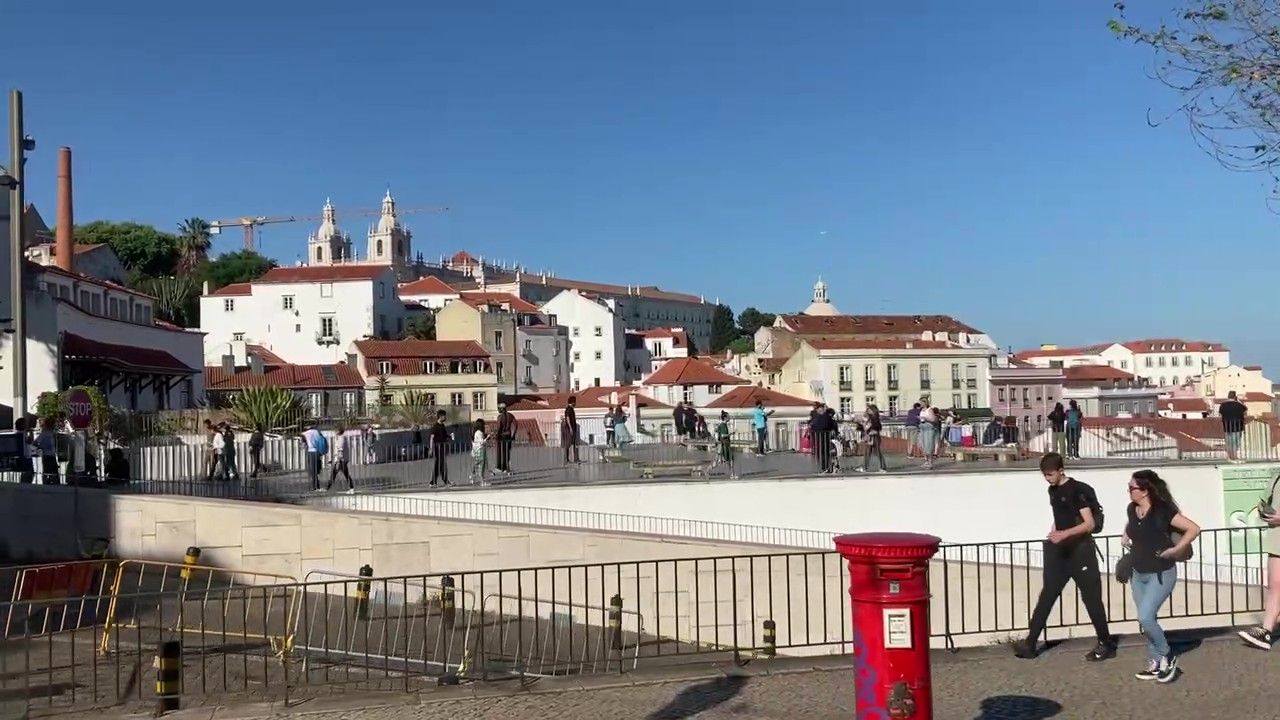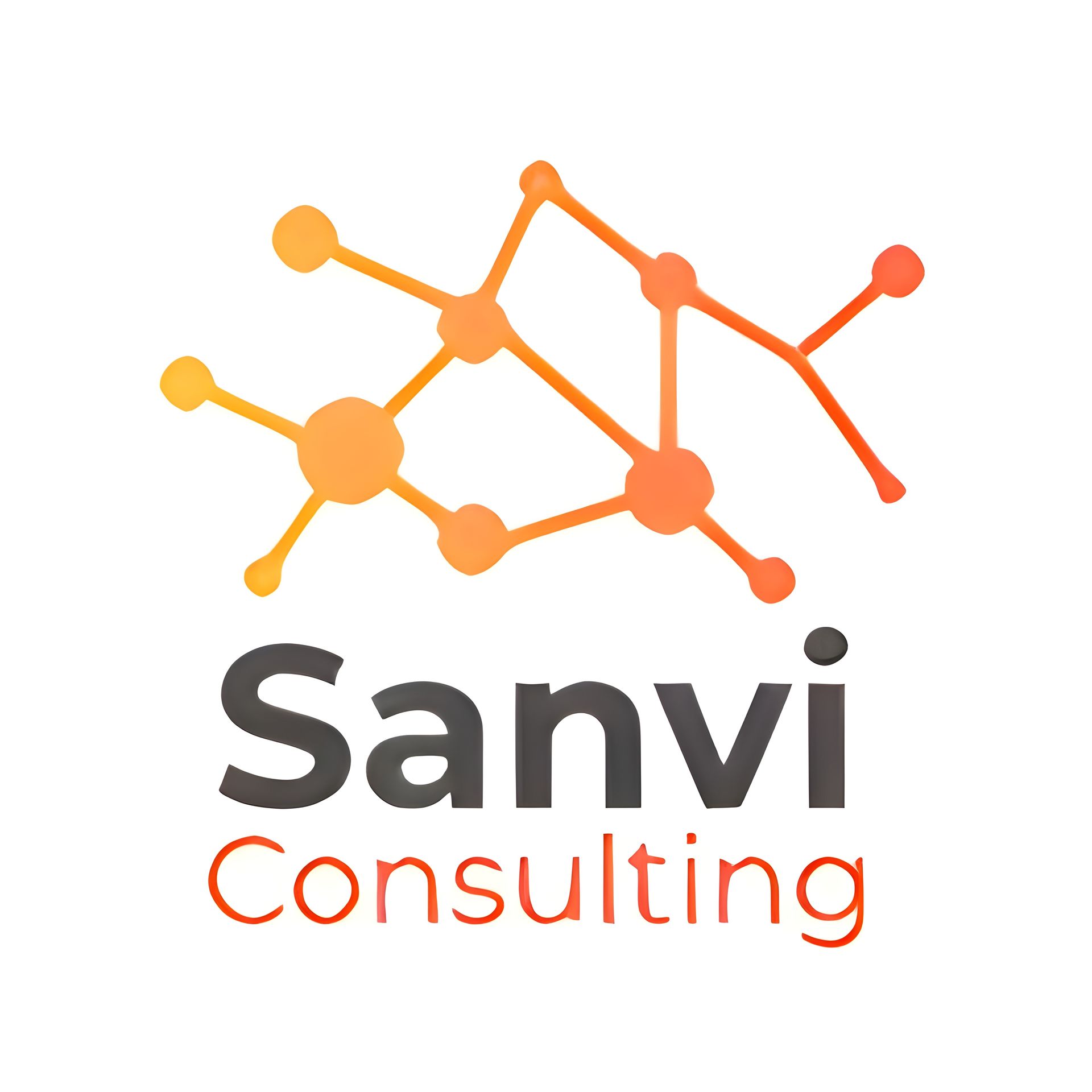We work to ensure that mobility meets the needs of citizens, public institutions and the private sector.
In a time of urban transformation and increasing mobility demands, Sanvi Consulting offers a technical, independent and specialized approach to address mobility and transport challenges with precision, data and strategic vision.
We combine
planning, engineering and data analysis with the goal of helping our clients face mobility and transport challenges, delivering
sustainable, safe solutions tailored to each territory and client, integrating the range of urban, metropolitan and rail mobility under a common vision of efficient and intelligent mobility.

Sanvi Consulting is certified under the ISO 9001:2015 and ISO 14001:2015 standards and is certified as an Emerging Company (Startup).

Sanvi Consulting is certified by RINA under the ISO 9001:2015 and ISO 14001:2015 standards, and by ENISA (Empresa Nacional de Innovación, S.M.E., S.A.) as an Emerging Company (Startup) under Spanish Law 28/2022, for its innovative and scalable business model.
National Security Framework (ENS) – Basic Level implemented, in accordance with RD 311/2022.
Sanvi Consulting operates under two complementary lines of work:
🔹 Urban mobility & public transport consultancy, serving public authorities, companies and private clients, offering planning, design and data analysis to enhance efficiency and sustainability of transport systems, with an integral approach that includes implementation, operational management and technical support.
🔹
Railway consultancy, specialized in the design, assessment and technical assistance for infrastructure, workshops, depots, stations, installations, rolling stock and railway maintenance and operations — all under criteria of safety, reliability and efficiency.
🔹 Mobility Analysis and Diagnosis
We carry out a comprehensive assessment of mobility performance in urban and metropolitan environments, identifying issues, bottlenecks, and opportunities for improvement.
The diagnosis covers all modes —public transport, private vehicles, pedestrians, and cyclists— as well as traffic management, parking, and accessibility.
We apply advanced modelling and data analytics to support decision-making with quantitative evidence and verifiable scenarios.
🔹 Strategic Mobility Planning
We design strategic and regulatory mobility plans that integrate transport with urban, territorial, and environmental planning.
Our team develops Sustainable Urban Mobility Plans (SUMPs), Simplified SUMPs, and Corporate Mobility Plans for large employment or activity centers.
We also develop public transport network reorganizations, metropolitan mobility strategies, and specific studies for Low Emission Zones (LEZs).
Our plans combine a rigorous technical approach with participatory processes and real, measurable sustainability criteria.
🔹 Public Transport System Optimization
We analyze the demand, coverage, and operational efficiency of urban and interurban public transport networks, proposing redesigns that improve accessibility and reduce operating costs.
We assess the technical and economic feasibility of operations, including route structure, frequencies, and stop locations, and their integration with other modes (bicycle, bus, metro, commuter rail, tram).
The objective is to provide efficient, attractive, and sustainable public transport services for citizens.
🔹 Traffic Management and Urban Mobility
We develop integrated strategies to optimize circulation and reduce congestion, tailored to the specific characteristics of each urban context.
Our work includes studies on travel demand management policies, traffic signal priority, urban toll systems, and mobility strategies for major events, tourist areas, or construction phases.
We also prepare parking management and street-space allocation proposals, guided by principles of equity and sustainability.
🔹 Impact Studies and Project Evaluations
We analyze the impact of
new infrastructures, urban developments, and private projects on mobility.
Using
Macro and Micro simulation, we evaluate the transport effects derived from
new general plans (PGOU),
zoning changes, or
large construction projects.
🔹 Accessibility and Active Mobility
We conduct studies to improve universal accessibility in urban environments and promote sustainable transport modes.
Our team develops pedestrian and cycling strategies, evaluates accessible routes, and proposes improvements to urban connectivity and public space design.
🔹 Public Participation and Advisory
We facilitate public participation processes to ensure that mobility solutions reflect community needs.
In addition, we provide technical studies for associations and private clients, supporting the preparation of formal comments and objections to mobility and territorial plans that may affect neighborhoods or local areas.
🔹 Innovation and Mobility Technology
We advise on the implementation of smart mobility technologies, such as Mobility as a Service (MaaS) platforms, data integration systems, real-time monitoring, simulation tools, and energy efficiency analytics.
We assess the technical and economic feasibility of innovative solutions aimed at improving transport management, road safety, and environmental sustainability.
🔹 Training and Capacity Building in Mobility
We design and deliver specialized training programs for public authorities, transport operators, and private companies, focusing on mobility planning, modelling, sustainable transport strategies, and data-driven decision-making.
Our training sessions are
practical, adaptable, and based on real project experience, helping organizations strengthen their internal capacity to plan, evaluate, and manage mobility policies and systems.
🔹 Railway Safety Studies
Risk analysis and development of safety management systems based on the Common Safety Method for Risk Evaluation and Assessment (CMS-ER, File 402). Assessment of infrastructure, operations, and mitigation measures to ensure railway safety throughout all project phases.
🔹 Maintenance Plans
Design and optimization of maintenance strategies for railway infrastructure and rolling stock. Development of preventive and corrective maintenance plans to ensure the reliability and operational efficiency of railway systems.
🔹 Operational Procedures
Development and improvement of operational protocols for the efficient management of railway services. Analysis and definition of standards for daily operations, emergency management, and traffic optimization.
🔹 Specialized Studies
Execution of technical, economic, and feasibility studies for the development, improvement, and optimization of railway systems. Analysis of infrastructure, rolling stock, transport demand, and operational efficiency.
🔹 Technical Assistance for Railway and Non-Railway Installations
We take part in the technical and functional definition of both railway and non-railway installations, including workshops, depots, stations, tunnels, power supply systems, signalling, ventilation, communications, CCTV, access control, and fire protection systems.
We develop technical and functional specifications for these systems, carry out benchmarking analyses with comparable operations, and propose technological and operational solutions tailored to each specific context.
We also provide support in the search and evaluation of suppliers and manufacturers, as well as in the technical review of bids, contract negotiation, and quality control throughout project execution.
🔹 Economic and Financial Analysis
Detailed assessments of
cost-benefit, financial feasibility, and investment planning. Studies on
funding models and profitability analysis for railway infrastructure and public transport systems.
Modelling and Simulation Department
Advanced Mobility Analysis for Decision-Making
The Modelling and Simulation Department strengthens Sanvi Consulting’s technical capabilities in advanced analysis of traffic, public transport, and pedestrian mobility.
It is composed of a specialized team in multimodal modelling, data analysis, and dynamic simulation, with experience in applying GIS analytics, big data techniques, machine learning, and large-scale data processing to optimize mobility planning and management.
We hold professional licenses for PTV Visum (400 zones), PTV Vissim Corridor, PTV Visswalk, and TransCAD, as well as custom Python and R scripts and algorithms developed for data processing, model calibration, and simulation process automation.
From this department, we work across the following key areas:
🔹 Macrosimulation: Large-Scale Traffic and Public Transport Analysis
Macrosimulation allows us to model traffic and public transport behavior in urban and metropolitan networks, anticipating the impact of new infrastructures and changes in mobility demand.
✔️
Traffic demand and generated mobility studies for new urban developments.
✔️
Public transport network analysis, route optimization, and demand forecasting.
✔️
Impact assessment of new infrastructures such as roads, transport hubs, or dedicated public transport lanes.
✔️
Multimodal modeling (car, public transport, cycling, walking) for sustainable mobility planning.
We use macrosimulation software such as PTV Visum and TransCAD, which enable us to analyze entire networks and assess different planning scenarios.
🔹 Microsimulation: Detailed Evaluation of Vehicle and Pedestrian Flow
Microsimulation provides a high level of detail in studying vehicle and pedestrian behavior in specific environments. It is essential for assessing the operation of streets, intersections, transport stations, or buildings with high pedestrian flows.
📌 Traffic microsimulation:
✔️
Evaluation of intersections, roundabouts, and dedicated lanes to improve flow and safety.
✔️
Impact analysis of roadworks, simulating detours and potential congestion.
✔️
Modeling of individual vehicle maneuvers and their interaction with pedestrians and cyclists.
📌 Pedestrian microsimulation:
✔️
Simulation of pedestrian flows in open spaces, such as squares, train stations, or airports.
✔️
Analysis of pedestrian behavior inside buildings, assessing evacuation and congestion points.
✔️
Optimization of access design and corridors in public and commercial infrastructures to enhance safety and user experience.
For these analyses, we use PTV Vissim and Visswalk, which allow highly precise mobility modeling.
🔹 Data Analysis and Predictive Modelling
We specialize in the
processing and analysis of large-scale mobility data.
We integrate diverse sources —traffic counts, sensors, surveys, mobile phone data, and traffic or public transport APIs— into proprietary analysis environments, developing
indicators, visualizations, and predictive models.
Applications:
- Integration and cleaning of mobility big data from sources such as MITMA, INE, operators, and mobile networks.
- Demand modelling using machine learning and multivariable regression techniques.
- Analysis of travel patterns and anomaly detection.
- Development of custom scripts for simulation, calibration, and result analysis.
- Creation of interactive dashboards and decision-support tools.
This approach combines traditional transport modelling with advanced analytics, delivering results that are more accurate, agile, and adapted to the real challenges of urban and railway mobility.
In the following video, you can see several examples of microsimulations carried out at Sanvi Consulting:





